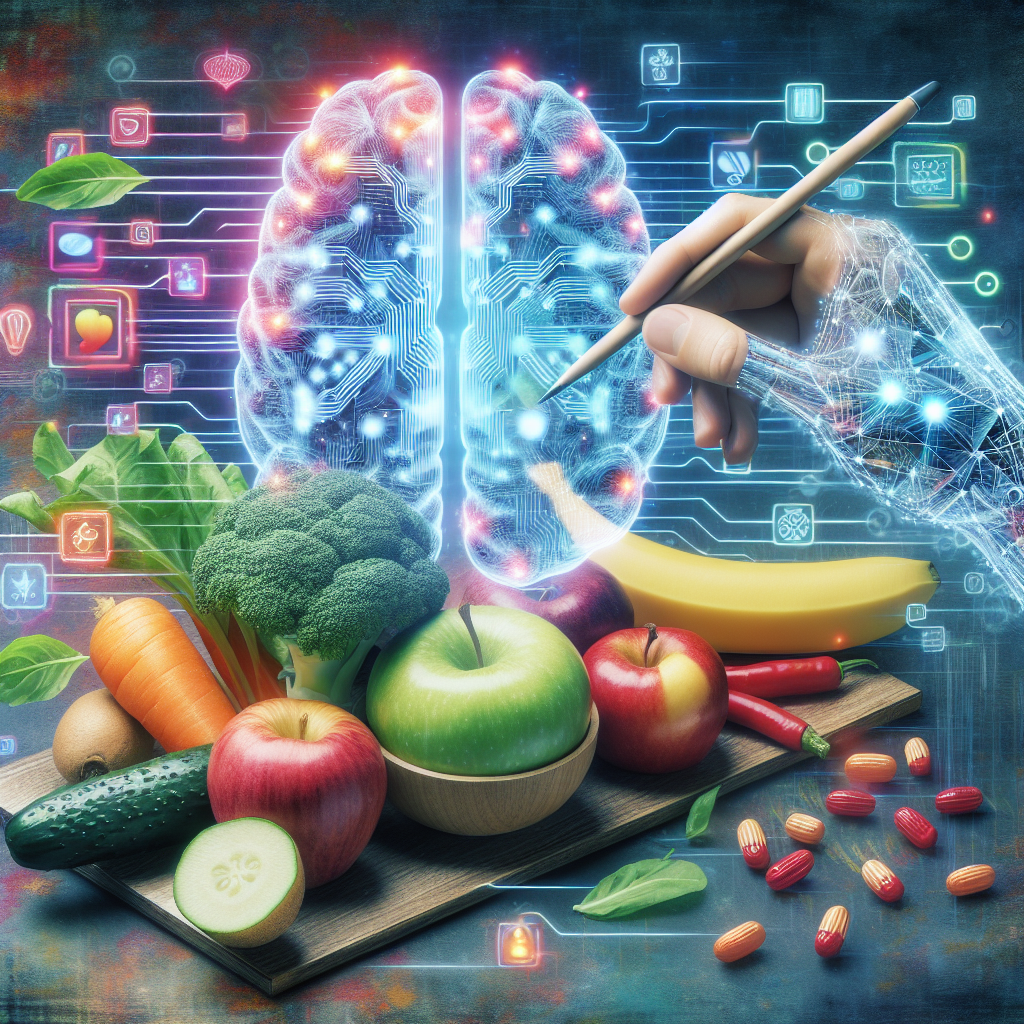In recent years, personalized nutrition has gained popularity as a more effective approach to achieving optimal health and wellness. This approach involves tailoring dietary recommendations to an individual’s unique needs based on factors such as genetics, lifestyle, and personal preferences. With advancements in artificial intelligence (AI) technology, personalized nutrition has become even more precise and accessible. In this article, we will explore the role of AI in personalized nutrition, its benefits, challenges, and potential future developments.
The Role of AI in Personalized Nutrition
AI technology has revolutionized the field of personalized nutrition by enabling the analysis of large amounts of data to create personalized dietary recommendations. AI algorithms can process information from various sources, such as genetic testing, blood tests, dietary logs, and lifestyle factors, to create a comprehensive profile of an individual’s nutritional needs. This information is then used to generate tailored dietary plans that take into account specific nutrient requirements, food sensitivities, and health goals.
One of the key benefits of AI in personalized nutrition is its ability to provide real-time feedback and updates based on an individual’s changing needs. For example, AI-powered apps can track a person’s dietary intake, exercise habits, and even sleep patterns to provide personalized recommendations for improving overall health and well-being. This continuous monitoring and feedback loop can help individuals stay on track with their nutritional goals and make adjustments as needed.
AI can also help address the issue of dietary compliance, which is a common challenge in traditional nutrition counseling. By providing personalized recommendations that are based on an individual’s unique needs and preferences, AI can increase the likelihood of adherence to a specific dietary plan. This personalized approach can lead to better outcomes in terms of weight management, disease prevention, and overall health improvement.
Furthermore, AI can help identify patterns and trends in an individual’s dietary habits that may be contributing to health issues or nutrient deficiencies. By analyzing data from multiple sources, AI algorithms can detect correlations between certain foods and health outcomes, allowing for more targeted interventions and recommendations. This can be especially helpful for individuals with chronic conditions such as diabetes, obesity, or cardiovascular disease.
Challenges and Considerations
While AI has the potential to revolutionize personalized nutrition, there are also challenges and considerations to be aware of. One of the main challenges is the accuracy and reliability of the data used to generate personalized recommendations. For AI algorithms to be effective, they need access to high-quality data from reliable sources. This can be a limitation for individuals who do not have access to genetic testing, blood tests, or other diagnostic tools that are typically used in personalized nutrition assessments.
Another challenge is the ethical and privacy concerns associated with the use of AI in personalized nutrition. As AI algorithms collect and analyze personal data, there is a risk of privacy breaches and misuse of sensitive information. It is important for individuals to be aware of the data being collected and how it is being used to generate personalized recommendations. Transparency and informed consent are essential for maintaining trust and confidence in AI-powered nutrition platforms.
Furthermore, there is a need for ongoing research and validation of AI algorithms in personalized nutrition. While AI technology has shown promising results in early studies, more research is needed to evaluate its long-term effectiveness and impact on health outcomes. It is important for researchers, clinicians, and policymakers to collaborate and establish evidence-based guidelines for the use of AI in personalized nutrition.
Future Developments
Despite the challenges and considerations, the future of AI in personalized nutrition looks promising. As technology continues to advance, AI algorithms will become more sophisticated and accurate in generating personalized recommendations. This will enable individuals to receive highly tailored dietary plans that are based on their unique needs and preferences.
In addition, AI-powered nutrition platforms will likely become more integrated with wearable devices and other health monitoring tools. This will allow for real-time tracking of dietary intake, physical activity, and other health metrics, leading to more personalized and proactive interventions. For example, an AI-powered app could recommend specific foods or supplements based on an individual’s current nutrient levels, activity levels, and health goals.
FAQs
Q: Can AI really personalize nutrition for me?
A: Yes, AI technology can analyze your unique needs and preferences to generate personalized dietary recommendations based on factors such as genetics, lifestyle, and health goals.
Q: How accurate are AI-powered nutrition platforms?
A: The accuracy of AI algorithms in personalized nutrition depends on the quality of the data used to generate recommendations. It is important to ensure that the data is reliable and from reputable sources.
Q: Is my personal data safe with AI-powered nutrition platforms?
A: It is important to be aware of the data being collected and how it is being used by AI algorithms. Transparency and informed consent are essential for maintaining the privacy and security of personal data.
Q: How can I access AI-powered personalized nutrition services?
A: There are a growing number of AI-powered nutrition platforms and apps available to consumers. It is important to research and choose a platform that is reputable and aligns with your health goals.
In conclusion, AI technology has the potential to revolutionize personalized nutrition by providing tailored dietary recommendations based on an individual’s unique needs and preferences. While there are challenges and considerations to be aware of, the future of AI in personalized nutrition looks promising. By leveraging the power of AI, individuals can take control of their health and well-being through personalized dietary plans that are designed to optimize their nutrition and overall health.

